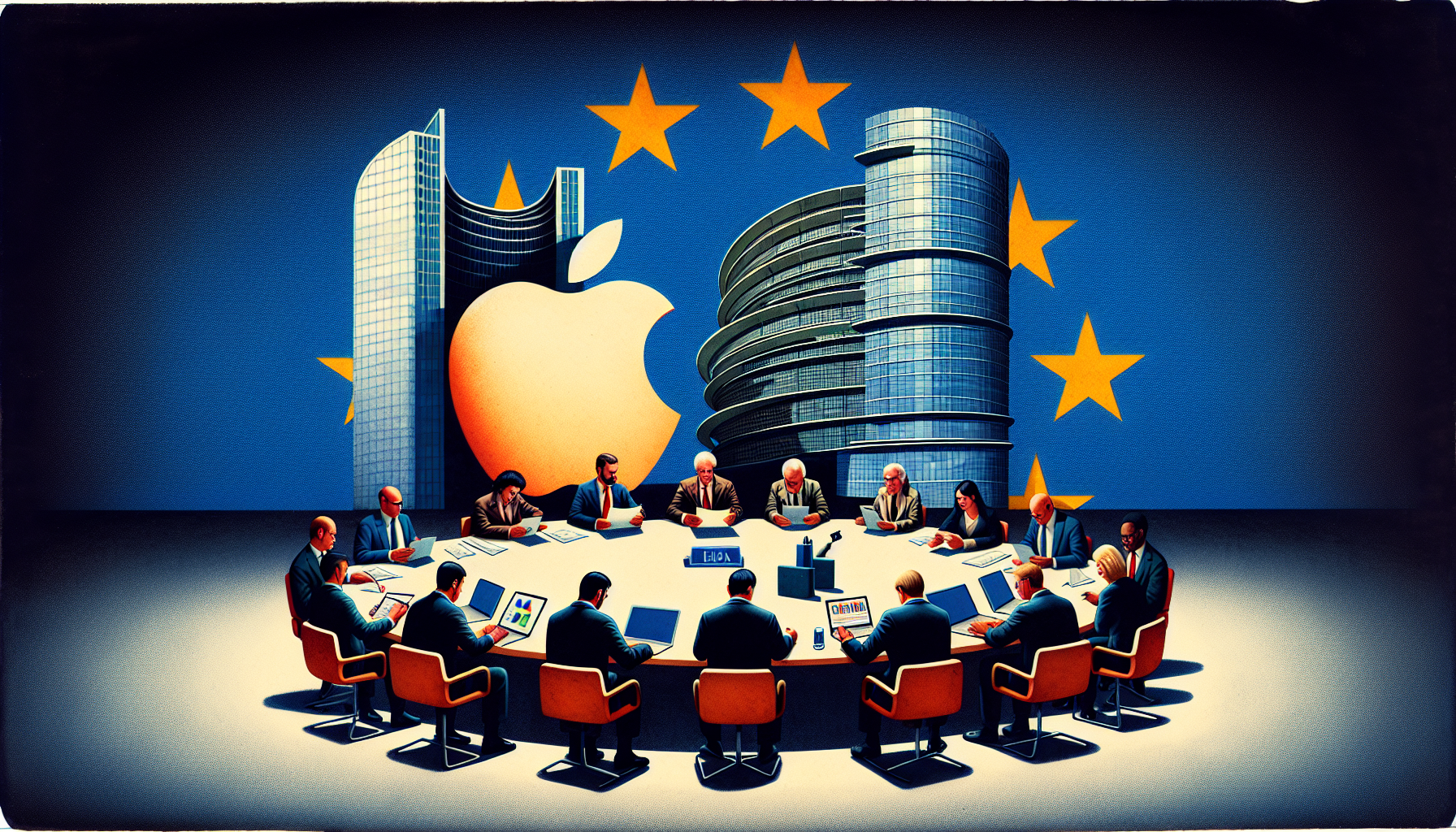 ## Apple’s Treatment of Epic Games Under EU Regulators’ Microscope
## Apple’s Treatment of Epic Games Under EU Regulators’ Microscope
Regulators from the European Union (EU) are currently probing whether Apple violated the Digital Markets Act (DMA) and other European regulations by recently cancelling an Epic Games developer account on iOS. If deemed at fault, the repercussions could include substantial fines from the European Commission as part of their endeavor to uphold stringent tech laws.
Apple Under the DMA Probe
“We have sought additional clarifications on this issue from Apple under the rules set by the DMA,” expressed a European Commission representative. “We are also investigating whether Apple’s dealings with Epic Games create uncertainty about their adherence to the DSA (Digital Services Act) and P2B (Platform to Business Regulation), due to the relationship between the developer program membership and the App store as a designated VLOP (very large online platform).”
The so-called “malicious compliance” Apple is planning towards the DMA, which is currently effective, has garnered significant attention lately. The European Commission’s statement, nonetheless, suggests the probe might also extend to other regulatory standards.
The Implications of the Digital Services Act
The Digital Services Act, enacted in Europe the previous year, emphasizes algorithmic recommendation transparency and platform-based “systemic risks” in propagating misinformation. The regulation also dictates that platform moderation, including actions such as account suspension or termination, should be carried out “in a diligent, objective, and proportionate way.” The EU appears to be keen on examining if the indefinite barring of Epic from iOS development aligns with this standard of proportionality.
Platform-to-Business Regulation Standards
The EU’s regulations on platform-to-business trading necessitate heavyweight platforms like Apple to adhere to transparency norms in their interactions with other businesses. This encompasses comprehensive guidance for “specific preliminary measures” that must be executed before a large-scale platform concludes a business account.
Recent Penalties and Potential Consequences
Earlier this week, Apple was slammed with a hefty $2 billion fine by the European Commission due to the corporation’s handling of competing music subscription services on its devices. This significant fine, against which Apple is protesting, could indicate that EU regulators are steering towards enforcing infractions of primary tech laws with more than just nominal fines. The penalties imposed for DMA breaches can escalate up to “10 percent of the company’s entire global turnover” for an initial offence.
“The fine serves to reprimand past conduct and also to dissuade repetition of such behavior,” said European Commission Executive Vice President Margrethe Vestager. “We are expecting DMA compliance this Thursday, so the compliance requirements we set are… simply, you need to allow another app store as an example, and you can’t impose a fee structure that undermines the advantages of the DMA for all market participants…”
Closing remarks
In response to these accusations, Apple pointed to “Epic’s flagrant violation of its contractual obligations to Apple” in its decision to withdraw Epic’s Swedish iOS developer account. Epic counter-argues that it has given a “good faith” assurance to comply with Apple’s terms for the development of a rival App Store in the EU, asserting that it is facing punitive measures for openly criticizing Apple. “Apple is penalizing Epic for decrying Apple’s unfair and illegal practices, which they have repeatedly done to other developers,” the firm stated.
Q&A
Q1: Could you explain the Digital Markets Act (DMA)?
A1: Essentially, the DMA is an EU regulation designed to guarantee fair and transparent digital markets. It imposes certain transparency, fairness, and competition rules on large online platforms, such as Apple.
Q2: Should Apple be found breaching these regulations, what could be the probable consequences?
A2: If found guilty, the European Commission can levy hefty fines on Apple. The penalties for DMA breaches can go up to “10 percent of the company’s total global turnover” for a first-time offence.
Q3: How is Epic Games reacting to this situation?
A3: Epic Games avers that it adhered in “good faith” to Apple’s terms for devising a competitive App Store in the EU and alleges that it is suffering penalties for public criticism of Apple. Epic claims that Apple is retaliating against it for opposing Apple’s illegal and unfair practices.
Q4: Can you evaluate the importance of the $2 billion fine recently imposed on Apple?
A4: The recent $2 billion fine that the European Commission imposed on Apple over the firm’s handling of competitive music subscription services could be an indication that EU regulators might impose more severe penalties for violations of their major tech laws in the future.
Q5: Can you explain the platform-to-business trading regulations stipulated by the EU?
A5: These regulations require major platforms like Apple to meet certain transparency guidelines in their correspondence with other enterprises. This includes elaborate directions for “specific preliminary steps” that need to be taken prior to a large platform closing a business account.